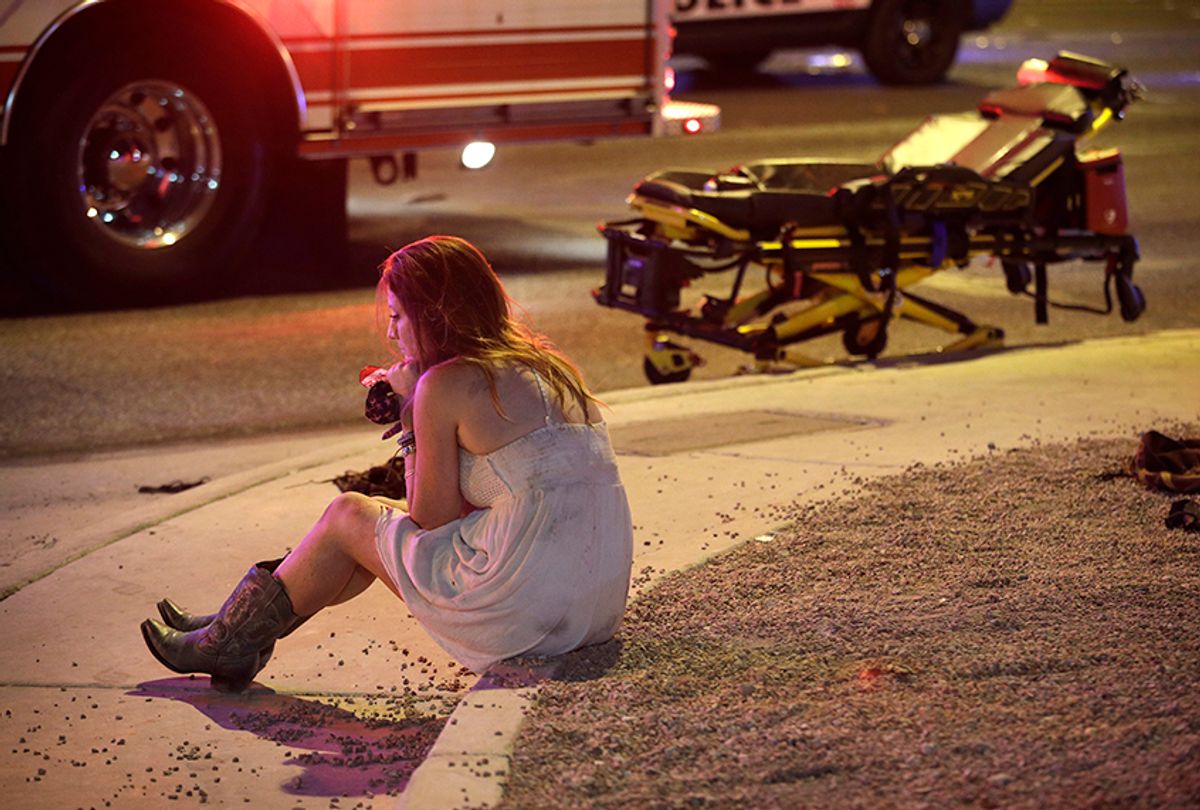Means, motive, opportunity. For detectives, nailing down those is the perp trifecta.
In Las Vegas, the forensic postmortem on the deadliest mass shooting in modern American history stands at two out of three. Means? Check. Opportunity? Check. But unless new evidence turns up, the killer’s motive is a black box.
A missing motive is worse than frustrating. It disrupts the moral order. When humans act, in Coleridge’s phrase, with “motiveless malignity,” our wisdom traditions, the stories we typically soothe ourselves with, are disturbingly ineffectual. Not knowing why the cipher on the 32nd floor did what he did, not knowing why god did what god did, upends our beliefs about luck, meaning, evil, justice — the stuff of life and death.
“What the detective story is about,” said P.D. James, the queen of crime fiction, “is not murder but the restoration of order.”
Las Vegas was, devastatingly, not fiction, but it was and is a detective story. It came to us labeled as news, but we experienced it as narrative. It was visual, visceral, violent and shamefully riveting. It also illustrates James’ aphorism: The murderer may be dead, but absent a motive, we’re stuck in a random cosmos, where horrors like this can happen to anyone.
Why did he do it? Was he a psychopath, driven by demons, severed from reality? No one who knew him saw it coming. If he could snap like that, who’s next?
Was it for fame? Revenge? Was he abused? Or was it political? Did he hate us for our freedom? He left no note, no manifesto, no trail of terror — no reason, until his blaze of barbarity, for us to call him other instead of brother.
Or did he do it, like a madman out of Dostoevsky, to demonstrate that god is dead?
“I was agnostic going into that concert,” Taylor Benge, 21, his and his sister’s clothes covered in other people’s blood, told CNN, “and I’m a firm believer in god now, ’cause there’s no way that all of that happened, and that I made it, and I was blessed enough to still be here alive talking to you today.”
The terror of that night is unimaginable. Like all Americans, I mourn the victims, and the survivors’ courage and generosity take my breath away. Yet — with respect — I wrestle with the idea of a god who blessed Taylor Benge enough, but who also made the monster of the Mandalay Bay. If the Benges’ survival is attributable to a god’s benevolence, could the 58 killed, the more than 500 injured and the shooter who rained grief and death on them be chalked up to a god’s negligence, perversity or impotence?
Any restoration of order is tentative, because our human hands have enough free will to fail us. But to inhabit a world where arbitrary carnage is inevitable: that’s a lousy story to have to tell our tribe about the nature of existence.
It limits god’s love. It imagines that god has abandoned us. It prompts some of us to source evil to an origin beyond god’s reach, to a Satan or an evil eye. It moves others to conflate mysticism with wishful thinking. It’s what led Gloucester, in “King Lear,” to drag our deities down to earth: “As flies to wanton boys are we to the gods. They kill us for their sport.”
Taylor Benge experienced his survival as god’s grace. To interpret it instead as luck: that’s living life on the volcano’s edge. I’ve been there. It’s intolerable.
On the cover of the Wall Street Journal on October 6, there appeared a three-column image of a page from the 1970 Francis Polytechnic High School yearbook, above the headline, “The Life of a Mass Shooter.” To protect student privacy, all pictures but one were pixelated. The exception was a photo of the murderer as a junior. Pleasant face, healthy head of hair. Normal-looking kid. In hindsight, uncanny and haunting. But no warning — no horns. The Journal’s reporters found nothing in his life that fits a mass killer’s profile. His final act might as well have fallen from the sky.
The mass murder case is closed. The murderer of order, though, remains at large. Our life stories now include his story. Like it or not, his motiveless malignity points a bullet at our dreams of an unconditionally lovable god.


Shares